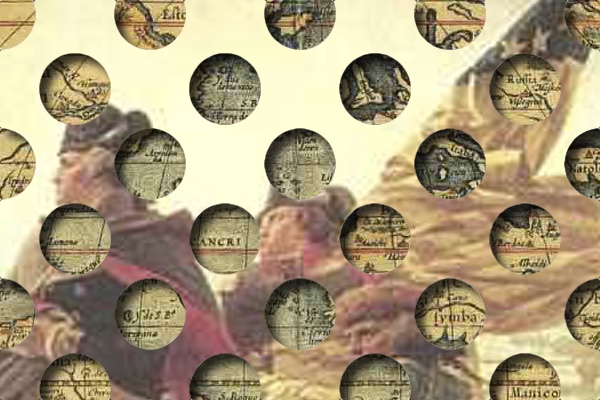The one-dot theory of history

History is the prediction of the present. Historians explain why things turned out the way they did. Since we already know the outcome, this might seem a simple matter of looking back and connecting the dots. But there is a problem: too many dots. Even the dots have dots. Predicting the present is nearly as hard as predicting the future.
Once, history was a game played with giant billiard balls: wars, revolutions, scientific inventions, the major awards shows. You knocked a combination of these together and you got our world. Then people realized that wars, revolutions, the Grammys, etc., are not explanations at all. They are themselves things that need to be explained. Something made them possible, too. Was it money? Ideas? Genes? Germs? Great men? Deepwater ports?
Histories are categorized according to what the historian has chosen as the basic unit of explanation. There are top-down histories, bottom-up histories, and sideways histories, histories in which causes have an oblique relation to effects. (Rome fell because the wine jars were made of lead—a fun explanation, though somehow unsatisfying.) There is history of the longue durée, which doesn’t help us understand why 2015 is different from 2000 (or, for that matter, from 1900 or 1800). There is species history, which explains even less. Humans invented agriculture: bad news, end of story. And there is “history of the present,” which tries to see today the way historians a hundred years from now will see it—as one more slice of time during which people had no idea how completely wrong they were about everything.
No historian lines up all the dots. Every work of history is a ridiculously selective selection from the universe of possible dots. What the historian is claiming is that these are the particular dots that lead us from there to here, or from time step 1 to time step 1.1. Lots of other stuff happened, the historian will agree. But, if these things hadn’t happened, then life as we know it wouldn’t be, well, as we know it.
This can be an existentially entertaining thought—that, but for some fluky past event, experience would be entirely, or at least interestingly, different. We tend to imagine our own lives that way, a story of lucky breaks, bullets dodged, roads diverged on a snowy evening, and the like. Speculating about sparks that failed to ignite versus sparks that did and contingencies that failed to materialize versus contingencies that did is one of the reasons people like to write history and like to read it. There is even, to appeal to this taste, the subgenre of counterfactual history, in which Napoleon conquers Russia, or the Beatles give “The Ed Sullivan Show” a pass. ...